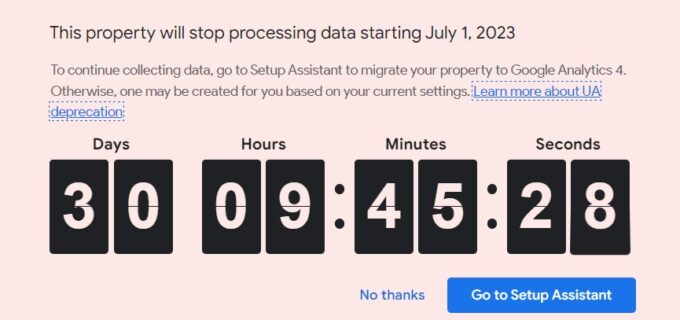
Hopefully you migrated to GA4 months ago and everything went smoothly, but if you had, you wouldn’t be reading this article, would you? Today we’re sharing some tips on how GA4 migration has gotten easier and some reasons you should pull the trigger on the migration now, instead of waiting until the last minute.
There is now a Setup Assistant for your GA4 migration. Strictly speaking, much of the functionality in here has actually been around for a little while, but now the Google Analytics interface is really pushing you to migrate and use their checklist. It doesn’t automate the process, but it gives you some benchmarks to track your progress against.
Depending on your content management system, there may be integrations. For example, Shopify now allows you to use the Google plugin to dramatically speed up the process of tracking ecommerce data in GA4. Unfortunately, not all content management systems make it this simple, but the major players in the space will probably do something similar to keep their customers happy.
Remember, if you don’t sell goods or services with an online checkout process, switching to GA4 is actually pretty simple. You can run Universal Analytics (UA) code simultaneously to GA4 code and then migrate on July 1, or you can make a hard switch from the older UA code to the new GA4 code and be done with it.
Also don’t forget to either: migrate your existing conversion events or set up new ones in GA4. If you’re comfortable using Google Tag Manager, setting up conversions isn’t much more difficult in GA4 than UA. We could outline many of the possible configurations for GA4 but instead, start with the Google Analytics migration guide. It covers the basics and you can always dive into your specific needs once you have the new property set up and gathering data.
Hopefully these tips are enough to help you get started. Everything you need for GA4 migration is out there from Google and other trustworthy sources. It may feel a bit like preparing your taxes; it won’t be fun but it’s time to grit your teeth and get it over with. You’ll be glad you did when the deadline passes and you’re not missing data.


